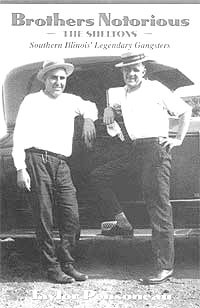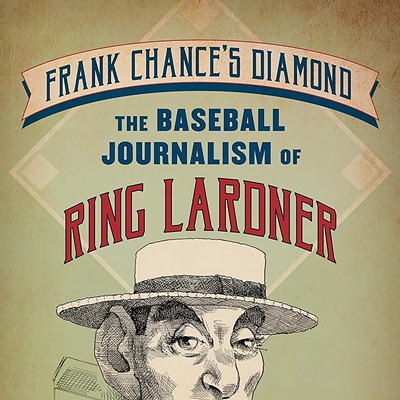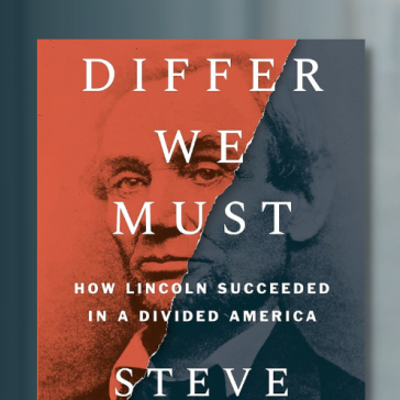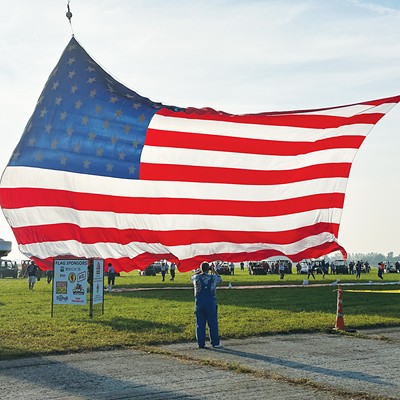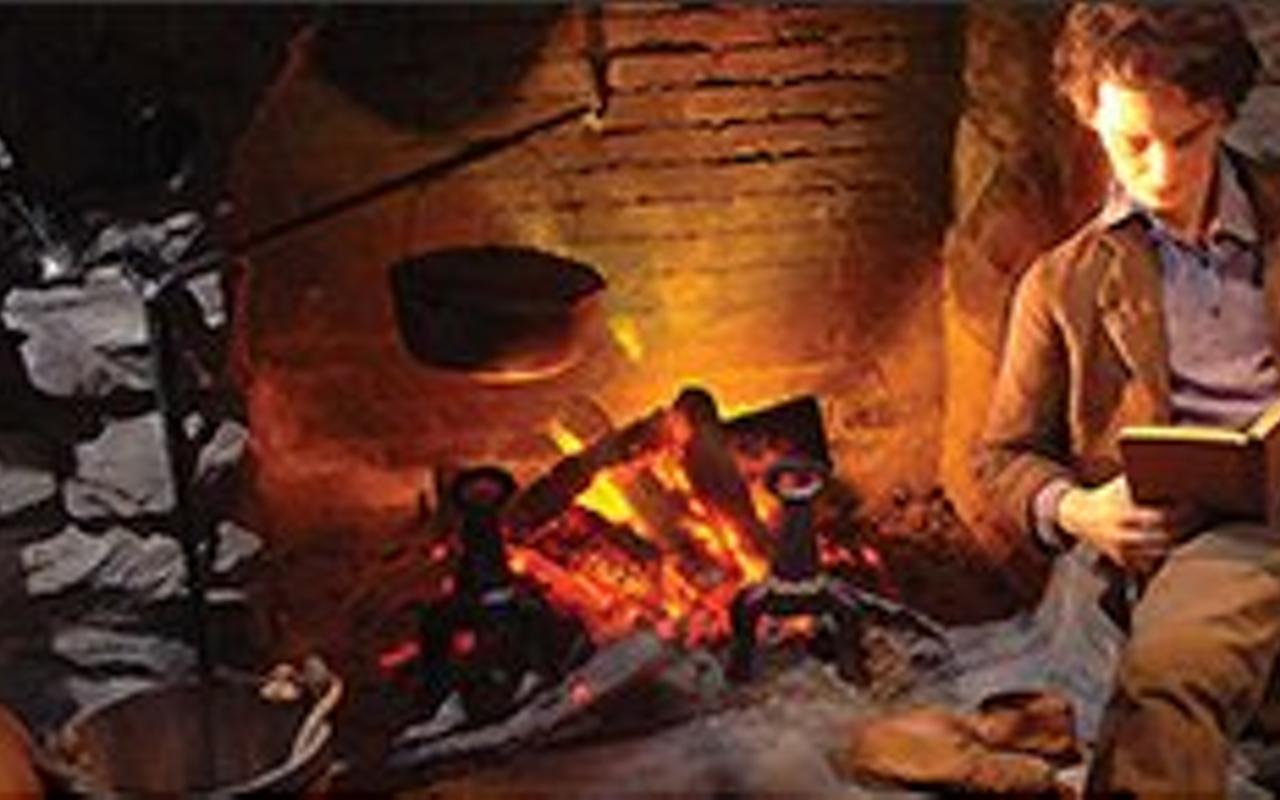Sometimes real-life stories are so big they seem to be fiction. That's what strikes you while reading Taylor Pensoneau's latest book, Brother's Notorious, The Sheltons: Southern Illinois' Ledendary Gangsters.
A lot of the most daring and violent bootlegging of the 1920s and '30s took place in southern Illinois, and the Sheltons--Carl, Bernie, Earl, and Roy--were the dowwnstate version of Al Capone, running their vice empire out of East St. Louis, and then Peoria. Growing up in Belleville, Pensoneau was enthralled by stories of the Shelton brothers and their intrigues.
"Everybody talked about the Sheltons," Pensoneau recalls. "They weren't folk heroes, but they were legendary."
His father told him tales of brutal Williamson County, where no one had been convicted of murder for more than a century, and the Herrin massacre of 1921, when strikebreakers were killed with impunity. The Klan waged a war against "sinners," and the Sheltons teamed up with gangster Charlie Birger to fight back. Once the Klan was beaten down, the two gangs went after each other.
These stories held sway with Pensoneau, who decided to become a storyteller. While still in high school, he wrote for the Belleville News-Democrat. He later graduated from the University of Missouri's school of journalism and embarked on a long stint at the St. Louis Post-Dispatch. "I worked 16 years for the Post-Dispatch, 4 years in St. Louis and then 12 in Springfield."
Pensoneau was a political analyst at the Illinois statehouse. In early 1978 he made his one and only career move to join the Springfield-based Illinois Coal Association. "The coal industry is heavily regulated," he explains. Eventually he would become president of the trade organization, which acts as a "bridge between the regulators and the industry."
Yet he never gave up on his dream of writing a book. In 1991, former Illinois governor Daniel Walker asked Pensoneau to write his biography. "When Governor Walker got out of prison and wanted a book written, I seemed like a natural to him since I had written extensively in my Post-Dispatch days about his administration," Pensoneau says.
After getting Walker to grant him editorial independence, Pensoneau produced Dan Walker: The Glory and the Tragedy. Smith-Collins, an Evansville, Indiana, publisher, brought out the book in 1993. Southern Illinois University Press then published his next book, 1997's Governor Richard Ogilvie: In the Interest of the State. The Chicago Sun-Times ranked the book among the 10 most notable political books nationwide that year.
Pensoneau began to think about writing a book on the Sheltons, who outlasted Capone to take over Peoria in the 1940s. "Peoria was a very wide-open town back then," he says, "Anything and everything went." In 1946, Pensoneau claims, reform mayor Carl O. Triebel asked Carl Shelton to move on, and Carl agreed. Bernie wasn't happy about his brother's arrangement and decided to stay on. Within the next two years, both brothers were killed by rival gangs: Carl in the backyard of his Wayne County home, Bernie in the parking lot of his tavern just outside of Peoria.
One reward of researching the book was tracking down a nephew of the Shelton brothers. Though the nephew would not talk about his uncles' gangster days, Pensoneau gained a lot of insight into the brothers' personal lives through the eyes of the nephew--who obviously thought the world of his family. Carl, for example, led the notorious bootleggers, but he was a teetotaler.
When the book was finally completed, Pensoneau set up his own publishing firm to put it out. Downstate Publications has done well, selling more than 12,000 copies of Brothers Notorious, and Pensoneau plans to self-publish his next book too: a novel, The Summer of 50. This project began when a friend in the movie business asked Pensoneau to write a mystery involving gangsters and gambling houses in the Midwest. The kind of writing Pensoneau pursued--taking a real-life story and treating it like fiction--was once called "faction" by Truman Capote. Detailing a three-month period during the summer of 1950, the plot outline for the movie provided a ready-made vehicle for Pensoneau to expand into a novel. His friend will retain the movie rights to the book, which should be released by Labor Day.
While self-publishing is a new venture for him, he has the added bonus of being married to an editor. His wife, Elizabeth, recently retired from the state of Illinois where she served as the editor of Outdoor Illinois magazine. Along with editing her husband's works, she also has an active business selling collectible calendars under the name "The Calendar Girl."
As if he weren't busy enough, Pensoneau has already embarked on another biography, commissioned by the family of the late W. Russell Arrington, the self-made millionaire who served as a Illinois state senator and leading force in the Republican Party. According to Pensoneau, "Arrington was primarily responsible for bringing the General Assembly into its current status as a full-fledged partner in Illinois government."
This will be Pensoneau's last year as president of the Illinois Coal Association. He's looking forward to devoting more time to writing. When asked how he fits all of these projects into his life now, he replies, "When it's time to write, I do find the time because I don't play golf."
For more information on Pensoneau and his books, you can visit his Web site, www.downstatepublications.com, or write Downstate Publications P.O. Box 320, New Berlin, IL 62670.

